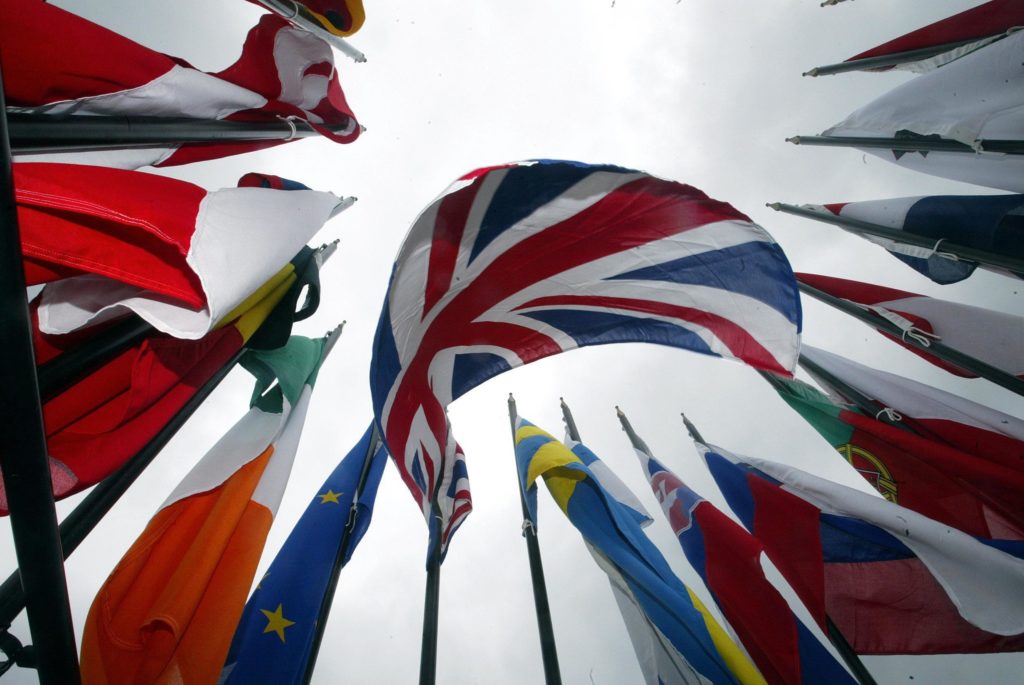
Global Public Affairs
In all my experience of working with public affairs experts, I don’t recall very many people with as much global experience as Stephen Crisp. I first did some work for him when he was Global Director of Government Affairs at Jaguar Land Rover.
With Brexit looming and free trade agreements up in the air, has there ever been a better time for the public affairs professional to prove their worth to business? Public affairs should perform a crucial role through the Brexit negotiations, helping to secure a positive and profitable future for British industries around the world. Growing jobs and prosperity for everyone.
Stephen is currently VP Public Affairs Asia, Middle East, and Africa with BT, as well Jaguar Land Rover he’s also worked with Nokia Siemens Networks. He has over twenty years global public affairs experience and has led operational government relations teams in Russia, India, the Middle East, China, Japan, Latin America, Germany, Finland, Canada, and Africa. Stephen has also created and run external relations operations and leveraged media relations in ASEAN, NE Asia, the EU, the UK, and the USA.
From knowing your corruption rules to enhancing your football knowledge – here Stephen answers some topical questions, shares his insights and talks about the lessons he has for public affairs practitioners to ensure they make the most of Brexit.

How will Brexit change trading relations for companies in Britain?
We don’t know in what form Brexit will happen, but we know it will mean changes in trading relations for Britain and its companies.
For public affairs professionals, it is very important that we look past the Brexit negotiations to the international trade environment after leaving.
In recent times, British companies have set their trade operations in Brussels because that is where the action was. Brussels will continue to be very important – especially in the short term – but we need to look at our proactivity in the rest of the world and at how we interact with the UK government and other governments to take advantage of the new opportunities and guard against the new threats.
When should British companies start seeking and/or negotiating new trade agreements?
Right now. Now is the time For British companies to get the best trade agreements. The free trade agreements (FTAs) will be high points in politics driving commercial outcome. This is a moment we earn our money – when the global public affairs leads of UK companies really will drive commercial agendas.
What are your top 10 tips for public affairs professionals as we look to the UK FTA future?
I have spent most of the last twenty years working for companies – mainly but not exclusively British – outside the UK. I’ve led operations in the UK, the USA, Brussels, Singapore and Hong Kong.
I have had a fascinating time going into markets to open them, increase their openness or defend against them being closed down.
In that time, I have dealt with some very gnarly trade issues. I have had some wonderful successes and some sapping disappointments. But from all of them, I learned some simple lessons which I want to share as we look to negotiate the UK FTA future.
1) Get ahead of the game. Now is the moment global public affairs to be looking to the future, post Brexit negotiations, to define the UK Government’s FTA policy and outcomes. But it is always necessary to be proactive and innovative. Never ask for help – you are too late; offer it.
2) Ask yourself why they should listen to you; why your view should be important to them; why your interests align with their interests. Do not start with regulatory or legal detail. Finish with it.
Decide your outcomes early and do not mix them up with your strategy. Your outcome is to gain equal market access; it is not to hold two drinks receptions a year.
3) Work it at three ends. Put your wishes into your “sponsoring” department in London. But also use the UK based trade leads of DIT and the FCO and the trade leads of DIT and FCO in the Embassy / High Commission of your target territory.
Much policy and guidance will come from London for any negotiations, but when it comes to priority and early pressure, the trade leads in a country will be crucial. They will have the working relationships, and they will choose which domestic departments to prioritise early. Is it your department?
I took the decision to invite the Embassy / High Commission representatives to my government meetings. I wanted to give the impression of a company trusted by our government. Having our government there with us in the meeting gives that impression. Make that call.
4) Decide early how you will use your multipliers (HMG, trade bodies), consultants and your company people. The multipliers can rarely do the job for you but they can get you in the door. Keep on them and keep them informed. But never let consultants represent you.
In Asia, the power of the Premier League is also a multiplier. It is a fantastic icebreaker. Use it and associate your British company with it. But go into a meeting knowing the difference between Wilf Zaha and Kevin De Bruyne. (There is none. They are both brilliant).
5) Be globally ethical. Do not fall for the “this is how we do things in this country” line. The corruption rules are pretty strict, but there are still ways to mess up outside them. You work for a British company. Is what you are doing acceptable in Britain? If you would feel even slightly uncomfortable answering media enquiries about it, don’t do it.
6) Be aware of local rules, etiquette and culture. But do not make a fetish of it. People are interested in you and your company. They accept that you cannot know all the social mores. You need to know enough not to be rude, but they are primarily interested in your company and its experience.
7) Go political as well as administrative. If the politicians are comfortable with your company and your presence in their country, the administrators will be as well.
8) Do your homework. You are there to speak as an expert. So be a subject expert. Know what you want to say and get from the meeting. Say it. And keep saying it. Check the biographies of those that you are meeting. Don’t busk an answer. If you do not know, write later.
9) Make sure your messages are the same all over the world. The internet is a wonderful thing. If a company is telling different stories in different geographies, it is easy to quote back at them in public meetings. If you are calling for non-tariff barriers to be dropped in foreign markets, but your colleagues are saying they want the shutters put up in the UK, you should probably consider what may happen to your CEO in a public setting.
10) Use your local commercial teams. They are the face of the company. Work with them. Take them with you on a government focussed few days to get them used to driving government issues in their region and to value doing it.
And a final bonus lesson…
Find a reason. Doors are often shut at the start if you do not have a clear investment plan. Be persistent, be patient, be stubborn. If they cannot see the point in talking to you, or maybe fear that you will tell them something they do not want to hear, find a reason. Does your company have a history? Align its lessons to current policy imperatives. Is your company in the world’s most competitive market sector? What are the lessons from that? There is always an angle of interest if you look hard enough.
Written by Gavin Ellwood
We are the leading global public affairs recruiter. Get in touch to learn more about how we can help find your next job in public affairs, policy or communications, or recruit your team.



